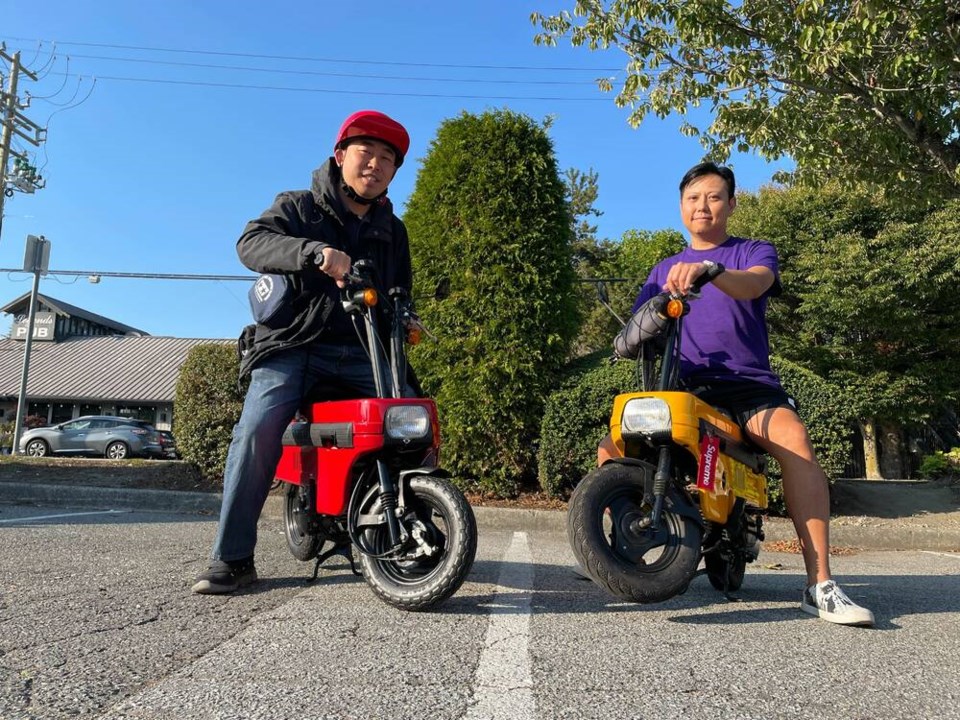Richmond friends and fellow car enthusiasts Berry Chiu and Brandon Tsoi share a deep appreciation for classic cars, especially their newly restored 1980s Honda Motocompo scooters.
These boxy, fold-up scooters that fit into the trunk of a Honda City hatchback evoke feelings of nostalgia and appreciation for the designers and manufacturers.
The Motocompo scooters were only sold between 1981 and 1983, explained Chiu, and could only be bought as a factory add-on when buying a Honda City car.
Only 53,000 of the scooters were ever sold during the two years they were on the market.
Chiu and Tsoi each bought a Motocompo scooter in 2022, for $6,500 apiece, and as soon as they arrived, they began the restoration process.
The first step was to find someone who knew how to fix the scooters and was willing to help with the restoration process, Chiu said, and this took some time.
“We wanted to make sure it was someone we could trust when it comes to such a specific vehicle,” he added.
But the most challenging aspect of restoring the rusty and stripped down scooters was finding original parts.
“The main concern was the 40-year-old gas tank for my scooter since it was basically all rusted,” said Chiu.
Fortunately, he was able to find one and import it from Japan. If he hadn’t, he would have had to find someone to build one, something that would have been a costly endeavour.
Restoring them took roughly a year as they needed to repaint the body, and replace the frame, headlights, brakes, side mirrors, hoses and speedometer on each scooter.
Restoring a vehicle to its original form brings a sense of accomplishment, Chiu said.
“People who love their vehicle know that spending the time, effort and money to restore it is worth it,” he added.
Tsoi said they are often approached by people of all ages asking if the scooters are real or just a toy, while some have asked if they plan to sell the scooters.
“It’s like a toy, but knowing people are curious about it just makes us happy to explain and talk to them about it,” he said.
“After spending so much time searching and restoring it, you just want to keep it. So, selling it is definitely not on our minds.”
The final touch of the process was receiving the collector’s plate, said Tsoi.
“While it’s like a toy and receiving or not receiving the title or plate is not a big deal, it’s really more like giving the scooter an identity.”
Chiu and Tsoi said their love for the Motocompo scooter comes from growing up in a generation where many Japanese domestic market (JDM) cars were shown on TV, animation and comics.
“These JDM cars would compete with world-class vehicles in the past and win, and that excitement is something similar to those watching F1 races now,” said Tsoi.
While newer cars with more electronic functions are great, Tsoi said older cars have “more heart and craft.”
“(The Japanese) are most proud of their tradition and craft and that’s what makes JDM vehicles so much more memorable.”



